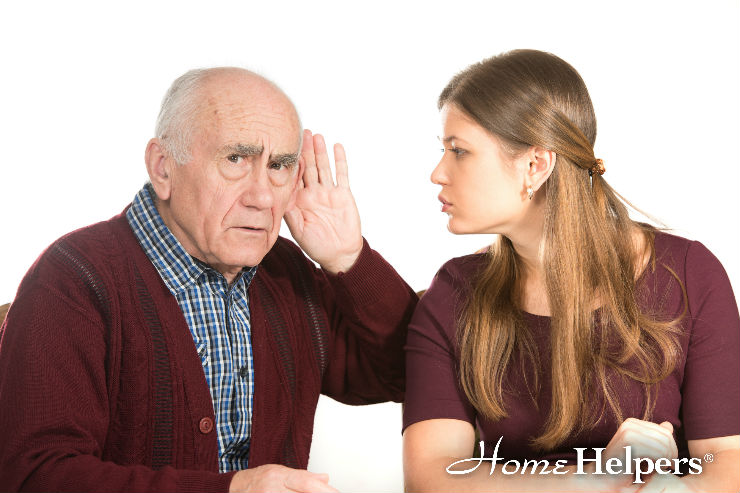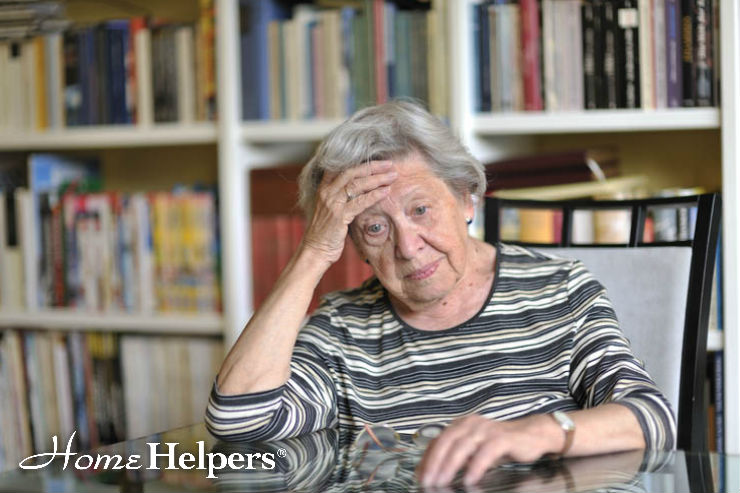Did you know that by the age of 65, a third of the population will have some type of hearing loss? By the age of 75, that number jumps to over half. Pretty staggering numbers to think that many people will deal with hearing impairment. So how does that affect a senior’s independence?
Studies show that as older adults age, hearing loss is common, along with some type of decline in cognitive health. In fact, seniors with hearing loss will experience cognitive decline nearly 40% faster that those without. Scientists believe that the reason for these numbers is the brain working much harder to process information as hearing loss worsens.
The bottom line is, by taking active steps to prevent hearing loss as early as possible, you may also be protecting your independence as you age.
Types of Hearing Loss
There are two main types of hearing loss: those caused by aging and genetics, and those caused by injury to the ears.
Sensorineural Hearing Loss
This hearing loss advances slowly and is nearly always caused by the aging process. It can also be worsened by high blood pressure, chronic ear infections and exposure to extremely loud noise over prolonged periods of time. Because the auditory nerve is damaged in this type of hearing loss, it is very rarely reversible.
This is a type of hearing loss that generally progresses very slowly. It can affect one ear differently than the other. Aging and heredity are the leading causes, but high blood pressure, ear infections, and prolonged exposure to loud noises are others. Because this type of hearing loss usually causes damage to the inner ear and auditory nerve, it is generally not reversible.
Conductive Hearing Loss
In this type of hearing loss, sound waves cannot reach the inner ear due to blockages such as perforated eardrums, wax buildup, and fluid in the ear. The good news is hearing loss caused by these situations care usually reversible if treated properly.
Five Ways to Protect Against Hearing Loss
Not all hearing loss can be prevented but doing all you can to protect hearing early is the key. Remember, seniors need to protect their hearing since they are ultimately protecting their independence and cognitive health.
Don’t Smoke!
As if you needed one more reason to quit smoking, tobacco use is known to cause hearing loss. If the senior in your life smokes, urge them to quit immediately!
Know the Side Effects of Medications
Some medications carry side effects that can cause hearing loss. Talk with a doctor and find out all the risks and why the medication is needed. There could be other options.
Prevent Exposure to Loud Noise
Even everyday noises such as lawnmowers, snow blowers, and other heavy machinery can cause hearing loss over time. TV’s and stereos played at high volumes can also lead to hearing loss. Wearing headphones that are sound-canceling will help protect hearing.
Check for Buildup of Ear Wax
Seniors can be more susceptible to the buildup of ear wax. Their doctor can easily check this frequently and keep it under control with regular care. Signs of ear wax impaction can include ringing in the ear, dizziness, pressure or earaches that happen frequently. It is easily treated.
Have Hearing Tested Annually
As with any other type of medical exams such as vision and dental, we should have hearing tested once a year. This is crucial for seniors!
For more information on keeping seniors independent as long as possible, contact us!
Legal Disclaimer
This blog provides general information and discussions about medicine, health, and related subjects. The words and other content provided in this blog, and in any linked materials, are not intended and should not be construed as medical advice. If the reader or any other person has a medical concern, he or she should consult with an appropriately-licensed physician or other healthcare workers.
Never disregard professional medical advice or delay in seeking it because of something you have read on this blog or in any linked materials. If you think you may have a medical emergency, call your doctor or 911 immediately.
The views expressed on this blog and website have no relation to those of any academic, hospital, practice or other institution with which may have been mentioned or linked to in the article.


